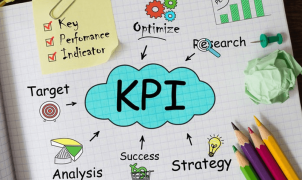
Taxation is a critical aspect of business management that cannot be overlooked. For businesses, effective tax planning can save money and optimize financial freedom. In this article, we will explore how to implement effective business tax planning, starting with the fundamentals.
1- Understanding Business Taxes
Business taxes are a fundamental aspect of financial management for any company. To effectively navigate the complexities of the tax system, it is essential to first understand the various types of taxes that a business may be subject to. This knowledge serves as the foundation for a well-informed and strategic approach to tax planning.
Types of Business Taxes
Businesses are subject to various types of taxes, each with its unique regulations, rates, and requirements. Here are some of the primary forms of business taxes:
- Corporate Income Tax: This tax is applicable to corporations and is based on the company’s net income. Rates vary depending on the company’s taxable income and legal structure.
- Personal Income Tax: For sole proprietorships, partnerships, and some LLCs, business income is reported on the owners’ personal tax returns. The income tax rate is based on the individual’s income and can vary.
- Value Added Tax (VAT): Common in many countries, VAT is a consumption tax applied to the value added at each stage of production or distribution. Businesses collect VAT on behalf of the government.
- Accounting Income Tax: This tax is based on the profit derived from accounting records. It may have different regulations and rates than corporate income tax.
- Property Tax: Property tax is levied on business-owned real estate and personal property like equipment, machinery, and vehicles.
- Payroll Taxes: These taxes include Social Security, Medicare, and federal and state income taxes withheld from employees’ paychecks. Employers are responsible for collecting and remitting these taxes to the government.
- Sales Tax: Businesses may be required to collect sales tax on retail transactions. The tax rate and regulations vary by location and type of product or service.
- Excise Tax: This tax applies to specific goods or services, such as alcohol, tobacco, and gasoline. The rates and rules depend on the product or service.
Key Considerations in Understanding Business Taxes
Understanding the nuances of business taxes is crucial. Here are some key considerations:
- Legal Structure: The legal structure of your business, whether it’s a sole proprietorship, partnership, corporation, or LLC, impacts the type and amount of taxes you pay.
- Taxable Income: To determine the appropriate taxes, it’s essential to calculate your taxable income. This involves considering deductions, exemptions, and credits.
- Filing Deadlines: Different taxes have different filing deadlines. Missing these deadlines can result in penalties and interest.
- Recordkeeping: Maintaining accurate financial records is vital. Proper recordkeeping ensures that you have the necessary documentation for tax returns and audits.
- State and Local Taxes: In addition to federal taxes, businesses may be subject to state and local taxes. These can include state income taxes, state sales taxes, and municipal business taxes.
- Compliance: Adhering to tax laws and regulations is essential. Non-compliance can lead to legal issues and financial penalties.
Benefits of Understanding Business Taxes
Comprehending business taxes has several advantages:
- Tax Savings: Knowledge of tax deductions and credits can result in significant cost savings for your business.
- Legal Compliance: Understanding the tax laws ensures that your business remains in compliance, reducing the risk of legal issues.
- Budgeting and Planning: Knowing your tax obligations allows for better financial planning and budgeting.
- Financial Decision-Making: An understanding of tax implications can inform key financial decisions, such as investments and expenses.
Grasping the fundamental concepts of business taxes is the initial step in effective tax planning. It allows you to navigate the tax landscape with confidence, minimize liabilities, and optimize your financial position. With this understanding, you can proceed to create a tax plan tailored to your business’s specific needs.

2- Tax Planning
Once you have a solid understanding of the various types of taxes that can impact your business, the next crucial step is tax planning. Effective tax planning involves developing strategies to minimize your tax liability, maximize deductions, and ensure compliance with tax laws. This section delves deeper into the process of tax planning and the key steps involved.
1. Grasping the Basics
Before diving into tax planning, it’s essential to have a strong foundation in tax fundamentals. You need to be well-versed in your business’s legal structure, financial situation, and the specific tax requirements that apply to your industry and region. This knowledge will empower you to make informed tax decisions.
2. Maximizing Tax Deductions
One of the central objectives of tax planning is to optimize tax deductions. By identifying and capitalizing on eligible deductions, you can reduce your taxable income, ultimately lowering your tax liability. Common deductions for businesses include:
- Business Expenses: These can range from office supplies and rent to salaries and utility bills. Keeping detailed records of your expenses is crucial for claiming these deductions.
- Depreciation: Businesses can deduct the cost of long-term assets (like machinery or equipment) over their useful life, reducing taxable income.
- Employee Benefits: Certain employee benefits, such as health insurance and retirement plans, may be tax-deductible for businesses.
- Charitable Contributions: Donations made to qualified charitable organizations are often tax-deductible.
- Interest Expenses: The interest paid on loans or credit lines used for business purposes can be tax-deductible.
3. Minimizing Tax Liabilities
In addition to maximizing deductions, effective tax planning also involves strategies to minimize tax liabilities. Strategies that can be employed to reduce the amount of tax you owe include:
- Tax Bracket Strategies: Understanding the progressive nature of income tax rates and managing your income to stay in a lower tax bracket can significantly reduce your tax liability.
- Asset Transfers: Shifting assets or income among family members or business entities can sometimes lead to lower tax obligations.
- Tax-Favored Investments: Investing in instruments with tax advantages, such as retirement accounts or tax-free bonds, can reduce taxable income.
- Leveraging Tax Credits: Some industries and activities offer tax credits that directly offset taxes owed. Understanding and utilizing these credits can lead to significant savings.
4. Legal and Compliant Strategies
It’s important to emphasize that all tax planning strategies must be legal and compliant with tax regulations. Using dishonest or illegal tactics can lead to severe penalties and legal consequences, which can be detrimental to your business. Always ensure that your tax planning adheres to the letter of the law.
Part 3: Monitoring and Adjustment
Effective tax planning is an ongoing process. Once you have established your initial tax plan, it’s essential to monitor and adjust it as necessary. Here are some critical aspects of this phase:
1. Record Keeping: Maintain organized financial records and tax documentation to substantiate your deductions and comply with tax regulations. This includes invoices, receipts, and financial statements.
2. Tax Software and Tools: Utilize accounting software or specialized tax software to track income and expenses, calculate taxes, and prepare accurate tax returns.
3. Periodic Review: Regularly revisit your tax plan to ensure it remains aligned with your business’s financial situation and any changes in tax laws. New deductions or tax credits may become available, or your business’s financial circumstances may evolve.
4. Professional Assistance: Consult with tax experts, such as certified public accountants (CPAs), tax attorneys, or tax advisors, to review your tax plan and make any necessary adjustments. They can also help you navigate complex tax issues and stay compliant with changing tax laws.
Effective tax planning is a strategic process that combines an understanding of tax basics with maximizing deductions, minimizing tax liabilities, and compliance with tax laws. By adhering to legal and ethical tax strategies and regularly reviewing and adjusting your plan, your business can enjoy the benefits of reduced tax obligations, better financial management, and the peace of mind that comes from being in good tax standing.

3- Consult Tax Experts
One of the most critical aspects of effective tax planning for businesses is seeking expert guidance and advice. Tax experts possess specialized knowledge and experience in the complex field of taxation. Consulting with tax professionals is a strategic move that can help you navigate the intricacies of tax planning and optimize your financial position. This section delves into the importance of consulting tax experts, who these professionals are, and the various roles they play in the tax planning process.
Why Consult Tax Experts?
While it’s possible to undertake some degree of tax planning independently, the expertise of tax professionals can make a significant difference for businesses. Here’s why consulting tax experts is crucial:
1. Specialized Knowledge: Tax experts are well-versed in the ever-evolving tax regulations and policies. They have a deep understanding of the complex tax landscape and can provide valuable insights into how these regulations apply to your business.
2. Maximizing Deductions: Tax professionals can identify potential deductions and credits specific to your industry or business operations. Their expertise allows you to leverage deductions that might otherwise go unnoticed.
3. Legal Compliance: Tax experts ensure that your tax planning strategies adhere to legal and regulatory requirements. This minimizes the risk of legal issues or audits arising from non-compliance.
4. Complex Tax Matters: For businesses facing complex tax situations, such as international taxation, mergers, or acquisitions, tax experts can provide guidance and navigate intricate tax issues.
Types of Tax Experts
Several types of tax professionals can provide guidance on tax planning for businesses. Understanding their roles and specializations is essential for selecting the right expert for your specific needs. Common types of tax experts include:
1. Financial Advisors or Tax Consultants:
These professionals are experts in financial management and tax planning. They provide advice on optimizing personal or business finances. They can assist with developing tax strategies, retirement planning, and investments that align with your tax goals.
2. Tax Attorneys:
Tax attorneys are legal professionals who specialize in tax law. They can address complex tax matters, such as tax disputes, legal tax strategies, and estate planning. They are essential for handling legal issues related to taxation and ensuring your tax strategies comply with the law.
3. Certified Public Accountants (CPAs):
CPAs are qualified accountants with expertise in financial management and tax planning. They are capable of reviewing financial statements, analyzing tax implications, and helping businesses develop tax plans. CPAs can also prepare and file tax returns on your behalf.
Roles of Tax Experts in Tax Planning
Tax experts play several key roles in the tax planning process:
1. Assessing Tax Liabilities:
They analyze your financial situation and assess your tax liabilities based on your business structure, income, and deductions. This assessment provides the foundation for tax planning.
2. Identifying Opportunities:
Tax experts identify potential deductions, credits, and tax optimization opportunities that align with your business’s goals. They consider industry-specific benefits and tax strategies.
3. Developing Tax Strategies:
They work with you to create a tax plan tailored to your business, with a focus on minimizing tax liabilities and maximizing deductions while remaining compliant with tax laws.
4. Keeping Current:
Tax experts stay updated on the latest tax regulations and changes. They ensure that your tax plan remains in alignment with evolving tax laws.
5. Preparing and Filing Tax Returns:
Many tax experts can prepare and file your tax returns on your behalf. This service ensures accurate and timely tax submissions.
6. Handling Audits and Disputes:
In the event of an audit or tax dispute, tax experts can represent your business and work to resolve issues with tax authorities.
Consulting with tax experts is a fundamental component of effective tax planning for businesses. These professionals offer specialized knowledge, maximize deductions, ensure legal compliance, and navigate complex tax matters. By partnering with the right tax expert or team, businesses can optimize their tax strategies, reduce liabilities, and enhance their financial management, ultimately ensuring they remain in good tax standing.

4- Monitoring and Adjustment
In the realm of business tax planning, the journey doesn’t conclude once you’ve established a well-crafted tax plan. Instead, this phase is followed by a continuous process of monitoring and making necessary adjustments. outlines the significance of consistent vigilance and adaptation in tax planning.
1. Record Keeping
Maintaining meticulous financial records is the cornerstone of effective tax planning. Adequate record-keeping substantiates your claims for deductions and credits, serves as a reference during audits, and ensures that your tax returns are accurate and complete. Key aspects of record-keeping include:
- Invoices and Receipts: Keep copies of all invoices and receipts related to business expenses, income, and transactions. These documents validate the deductions and credits you claim.
- Financial Statements: Regularly update your financial statements, such as income statements, balance sheets, and cash flow statements. These documents provide a comprehensive view of your business’s financial health and activities.
- Bank Statements: Bank statements are crucial for tracking income and expenses. They help maintain transparency and accuracy in financial records.
- Payroll Records: If you have employees, payroll records are essential. They ensure accurate withholding and payment of payroll taxes.
- Asset Documentation: Keep records of asset purchases, depreciation schedules, and any asset-related transactions. This is particularly important for claiming depreciation deductions.
2. Tax Software and Tools
Advancements in technology have greatly simplified the process of tax planning and compliance. Tax software and tools play a vital role in automating tax-related tasks, facilitating accuracy, and streamlining the tax return process. Key aspects of using tax software and tools include:
- Tax Preparation Software: Utilize tax preparation software that caters to your business’s needs. These tools can guide you through tax return preparation, flag potential issues, and offer updates on changes in tax laws.
- Accounting Software: Adopt accounting software to track income and expenses, manage payroll, and generate financial reports. Many accounting tools can integrate with tax preparation software to streamline the tax filing process.
- Online Tax Services: Online tax services provide cloud-based solutions that enable you to access and manage your financial data from any location. They offer data security, real-time updates, and collaboration features.
- Electronic Filing: E-filing, or electronically submitting tax returns, is generally faster and more accurate than traditional paper filing. E-filing also provides confirmation of receipt and reduces the likelihood of errors.
3. Periodic Review
Effective tax planning is not a one-time endeavor but an ongoing process. The business environment, your financial situation, and tax regulations can change over time. To ensure your tax plan remains effective, regularly revisit and review your tax plan with the following considerations:
- Tax Law Changes: Stay updated on changes in tax laws and regulations, both at the federal and state levels. New tax laws or adjustments to existing ones can impact your tax liabilities and opportunities.
- Financial Changes: Any significant changes in your business’s financial situation, such as revenue growth, expansion, or the introduction of new products or services, should prompt a reassessment of your tax plan.
- Life Events: Personal or business-related life events, such as marriage, divorce, birth, or death, can have tax implications. Be aware of how these events affect your tax situation.
- New Deductions or Credits: Periodically research and explore potential deductions and credits that may have become available since your last tax review. Industries and tax laws evolve, so there may be new opportunities to optimize your tax plan.
4. Professional Assistance
It’s advisable to enlist the services of tax experts, such as certified public accountants (CPAs) or tax consultants, to assist in the monitoring and adjustment phase. Tax professionals can help you stay informed about tax law changes, perform comprehensive tax reviews, and ensure your tax plan remains up to date. They also help you comply with tax regulations and address any issues that may arise during audits or disputes.
The final phase of effective tax planning is characterized by constant vigilance and adaptation. By maintaining precise financial records, employing tax software and tools, conducting periodic reviews, and seeking professional assistance when needed, businesses can ensure that their tax plans remain compliant, accurate, and optimized. This approach leads to a more financially secure and legally compliant operation, fostering peace of mind and continued success in the world of business tax planning.

Conclusion
Implementing effective tax planning is a crucial part of managing a business. By understanding the type of taxes you must pay, creating a tax plan, consulting with tax experts, and regularly reviewing and adjusting your plan, you can optimize your financial freedom and minimize tax liabilities. Leverage fundamental knowledge and expert support to ensure that you are executing an effective tax plan for your business.




 Welcome to LawyerNote, your premier destination for expert legal counsel tailored to your unique needs. At LawyerNote, we specialize in navigating the complexities of the legal system, offering comprehensive solutions to our valued clients. With a team of seasoned attorneys covering diverse fields including corporate law, family law, and criminal defense, we’re equipped to handle a wide spectrum of legal matters. Our unwavering commitment to excellence, integrity, and client satisfaction sets LawyerNote apart. Whether you’re grappling with a complex litigation case or seeking guidance on business transactions, LawyerNote is your trusted legal partner every step of the way.
Welcome to LawyerNote, your premier destination for expert legal counsel tailored to your unique needs. At LawyerNote, we specialize in navigating the complexities of the legal system, offering comprehensive solutions to our valued clients. With a team of seasoned attorneys covering diverse fields including corporate law, family law, and criminal defense, we’re equipped to handle a wide spectrum of legal matters. Our unwavering commitment to excellence, integrity, and client satisfaction sets LawyerNote apart. Whether you’re grappling with a complex litigation case or seeking guidance on business transactions, LawyerNote is your trusted legal partner every step of the way.




